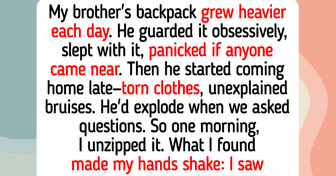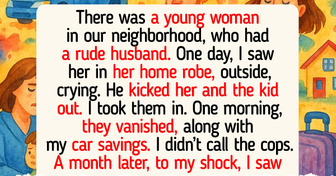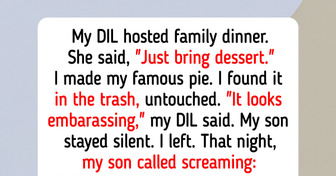I Canceled My Wedding After Overhearing What My Fiancé Said Behind My Back


Marina Mellia is a psychology professor and author of best-selling books about the psychology of success and conscious parenting. She’s also the chief psychologist of successful billionaires, many of whom ask her for advice about parenting. Marina has a unique opinion about raising children. Contrary to many of our parenting tendencies, she claims that it’s pointless to try and make something of a child and it’s impossible to program a child for success. As parents, all we can do is try to raise a happy person that will know how to make a living for themselves. How? By giving the right directions. This is where we need to learn her tricks.
We at Bright Side first wanted to find out how a person can look this stunning at the age of 72, but then we decided to focus on psychology and talk about the parenting mistakes that prevent children from becoming wealthy.
Very often, parents ignore an important aspect of communication — the signals we send to our children with our words and actions. These signals program the children for many years to come. Here are a few examples of the stereotypes in people’s minds and the feelings that impact their future.
In fact, providing for our children is our responsibility. Whether you do it or not is your choice, but you can’t demand any special gratitude for that from your kids. Forget phrases like, “We’ve done so much for you and you...”.
Take responsibility for how much you do for your kid. More than other families? Great. Just accept the fact that you do it because you want to. The thing is, gratitude and respect for parents don’t depend on the level of income of a certain family.
There are 2 dangerous strategies when it comes to raising a neurotic person:
Don’t impose strict schedules on your children. They will only help you raise an unhappy person with a bleak childhood. Give your children some free time where they can do nothing at all. Doing nothing is just as important as studying. This is the time to watch the sky, dance, and live. This is how creativity is born.
Today, some parents pay their children for every good grade they get, or for cleaning their room and other things like that. This is wrong. Bribery is not the best way to raise children. By paying them for their successes, we push children toward not valuing their actual successes. A family is not a market, it’s a relationship based on love and care.
Sometimes parents say something like, “Money doesn’t grow on trees” or “When I was your age, I already...” We’ve heard this from our parents and we tell this to our children. By making our children believe that money is very hard to earn and that it’s a great responsibility, you make children develop the irrational fear of losing money.
These phrases we say don’t have anything to do with real life. Discuss every single situation individually. If you can’t buy something, discuss what you can do to save enough for the purchase.
A mother says that her son calls her by her name because they are friends. Being friends with children is a new trend. A family is a system with a hierarchy, where everyone plays their role. Parents — care, buy clothes, and love. Children — obey their parents, make mistakes, and check where the limits are. Only by being “above” can parents do their job well. In trying to make friends, they become peers and lose control.
What is a child supposed to understand if their parents can’t agree about money? And when the father is the saver and then criticizes the mother for an expensive purchase, children get really confused.
When limited by very strict rules, children quickly get used to external control. First, they listen to others in kindergarten, then in different classes and in school. You should teach them to take initiative and tell them it’s important to not live according to someone else’s expectations, but instead to do what they want. When we tell them things using terms like “you have to” or “you need to,” we kill their motivation and all their creativity.
Teach them to dream and to not follow orders. They should be able to understand what they want and they need your support.
Which of these mistakes did you make? Share your experience in the comment section below!











